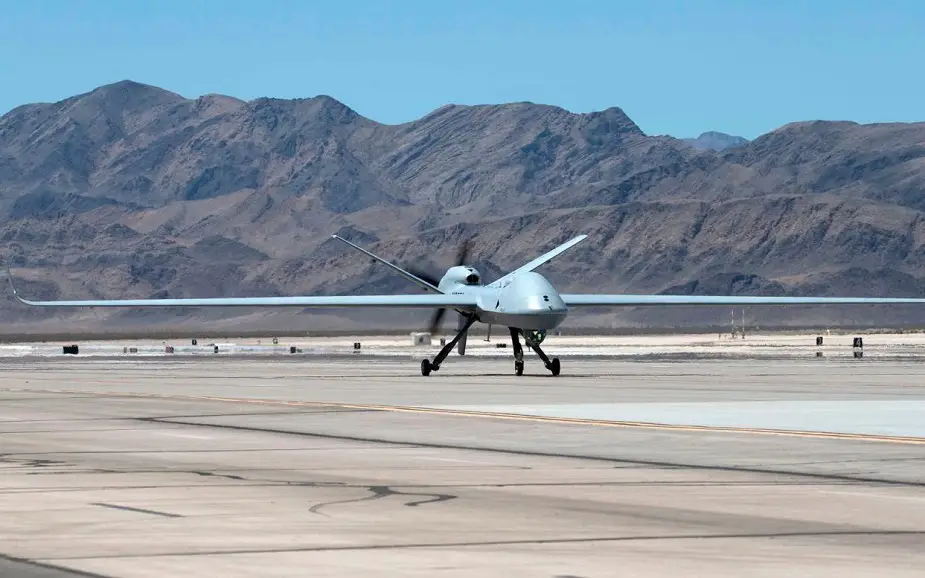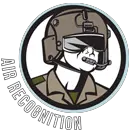In UK, Royal Air Force's personnel selected to fly and operate the Reaper Remotely Piloted Aircraft System (RPAS) will now benefit from an improved training system which also paves the way for the arrival of the new Protector RG Mk1.
Follow Air Recognition on Google News at this link
 The RAF's Protector Remotely Piloted Aircraft System, seen at Creech Air Force Base in Nevada, USA (Picture source : UK MOD)
The RAF's Protector Remotely Piloted Aircraft System, seen at Creech Air Force Base in Nevada, USA (Picture source : UK MOD)
Future Reaper pilots and operators will now spend six weeks at the General Atomics Aeronautical Systems, Inc. (GA-ASI) Flight Test and Training Centre in North Dakota undergoing ground school and learning basic aircraft operations. This training will initially run in parallel to training undertaken at Holloman AFB in New Mexico, home to the largest RPA training establishment in the world.
Students will then progress to Creech AFB where they will join 39 Squadron at the Nevada base to undergo the more advanced training. The squadron has absorbed the 54 Squadron Reaper Training Flight which previously taught the UK specific aspects of operating Reaper including rules of engagement and UK safety procedures.
At the conclusion of their Combat Ready work up training personnel can fly operational sorties without supervision.
“Using RAF and GA-ASI instructors enables us to have complete control over the syllabus and training objectives at every stage of the course negating the need for a conversion to UK specific tactics, techniques and procedures. This is a huge win for us.” said Wing Commander Colin Welsh, Officer Commanding 39 Squadron.
A similar training system will be used for the new Protector RPAS which will enter RAF service in the early-2020s. Protector will be deployed in wide-ranging Intelligence, Surveillance, Targeting and Reconnaissance (ISTAR) operations where its ability to fly consistently for up to 40 hours, will offer vastly improved armed ISTAR capability. It would also be available, if requested, to support civilian agencies in the UK, for example in search and rescue or disaster response missions.
















